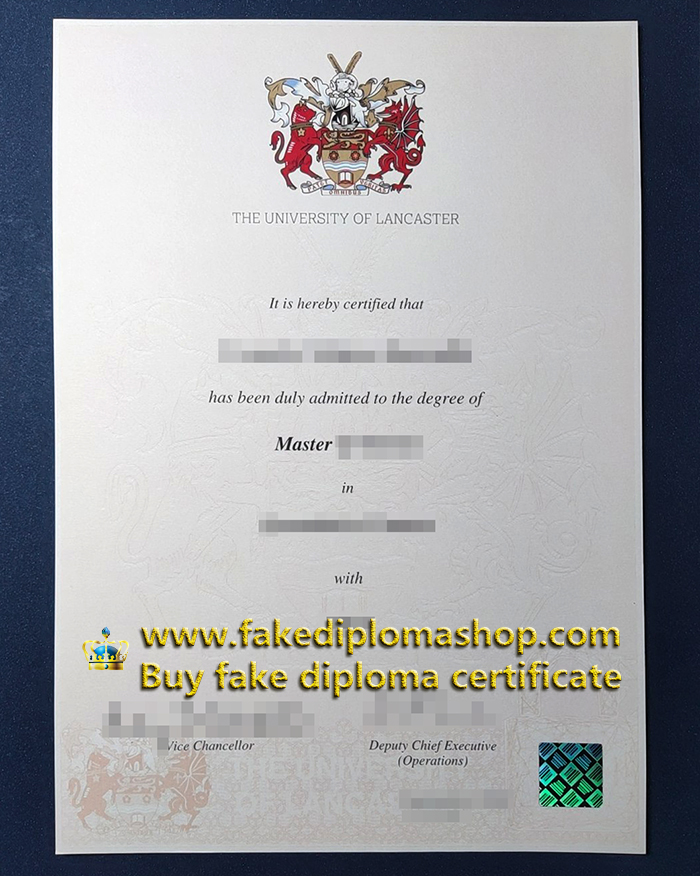
Lancaster University degree of Master
Order a fake Lancaster University degree of Master for a better job. Buy a fake Lancaster University degree in 2023. Is a degree from Lancaster University good? What is a Lancaster University diploma equivalent to? Is Lancaster University diploma hard to get into? Is Lancaster University degree recognized? Lancaster University (legally The University of Lancaster) is a public research university in Lancaster, Lancashire, England.
The university was initially located at St Leonard’s Gate in the city centre, before moving to a purpose-built 300 acre (120 ha) campus at Bailrigg, 4 km (2.5 mi) south, beginning in 1967. Campus buildings are arranged around a central walkway known as the “Spine”, which is connected to a central square called “Alexandra Square” in honor of the first principal, Princess Alexandra.Lancaster is a residential college university; the colleges have less autonomy. The eight undergraduate colleges are named after places in historic Lancashire, and each has its own campus accommodation, common rooms, administration staff and bar.
Lancaster has been ranked in the top fifteen in all three national league tables over the past 10 years and received a gold rating in the government’s first (2017) Teaching Excellence Framework. The institution’s annual income in 2021/22 was £357.9 million, of which £48.1 million came from research grants and contracts, and expenditure was £402.9 million. Lancaster University, like Durham University, Leeds University, Liverpool University, Manchester University, Newcastle University, Sheffield University and York University, is a member of the N8 research university group. Queen Elizabeth II, Duke of Lancaster, visited the school. The current principal is Alan Milburn, who has served since 2015.
What is the difference between a Lancaster University degree in 2023?
The university has nine colleges. Previously, these institutions were quasi-autonomous bodies providing accommodation, welfare, social life and student discipline, but are now centrally controlled. All members of the University are members of the Academy, although the participation of academic staff has declined in recent years. Most colleges have around eight or nine hundred members, all on-campus accommodation is associated with one college, and each year there are blocks or individual apartments associated with one or the other college, depending on demand.
The colleges are run by a consortium, including a principal (originally a senior academic, but now more commonly a mid-level manager or IT professional), a dean and assistant dean (responsible for student discipline) and The Senior Advisor leads a team of university advisors. These individuals were previously known as Senior Tutors and University Tutors, but in 2011 these titles were changed to Advisors to avoid confusion with the “Academic Advisors” of the student’s academic department. Overall, the Houses are governed by respective SCRs (Senior Common Rooms) and JCRs (Junior Common Rooms), the latter consisting of the student members of the Houses.

